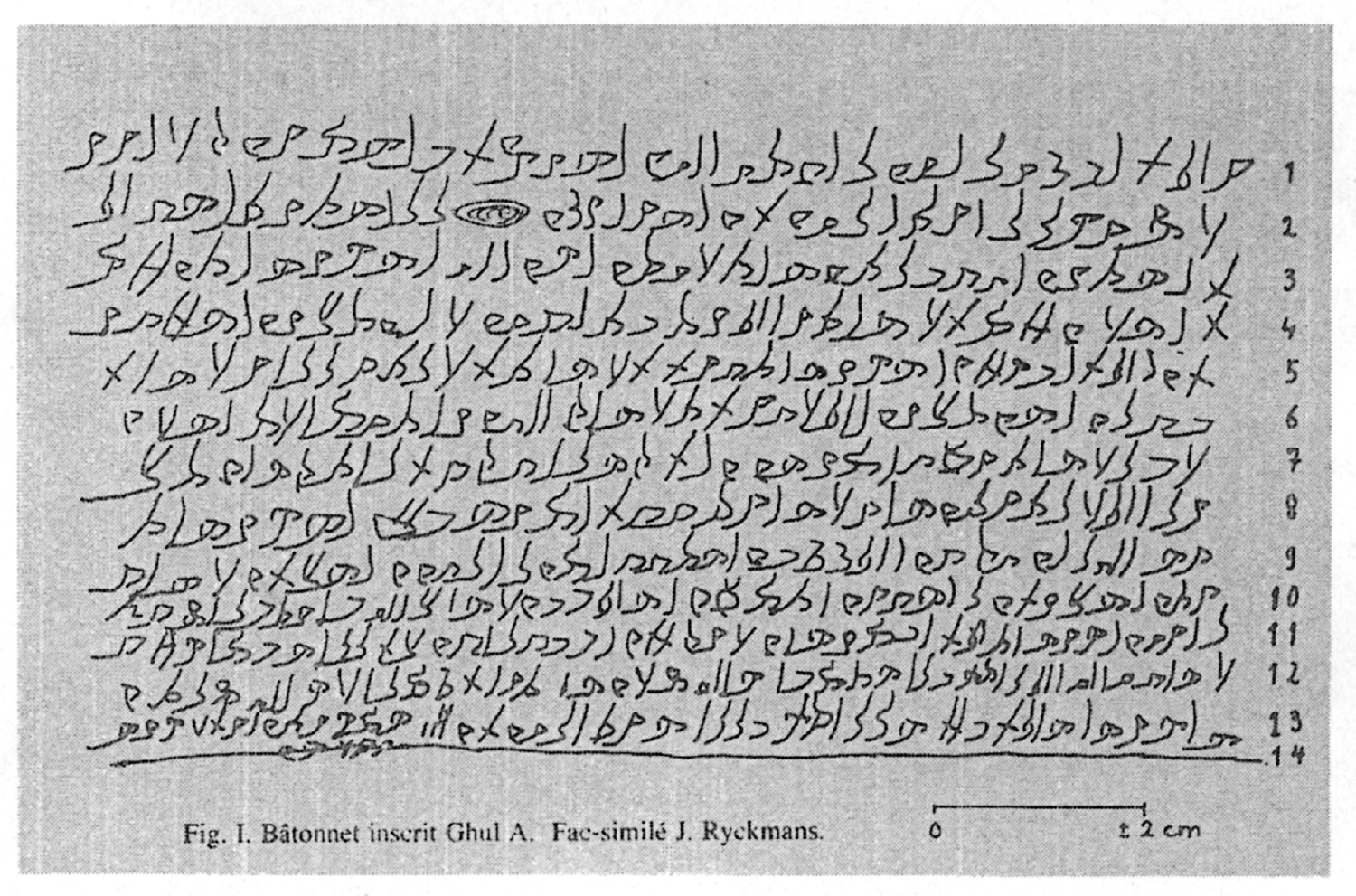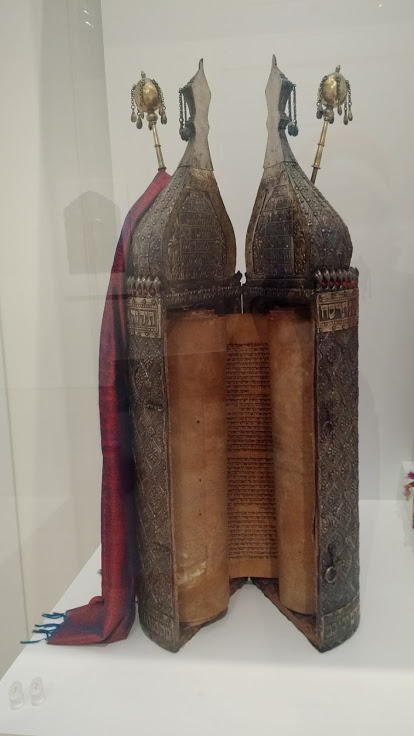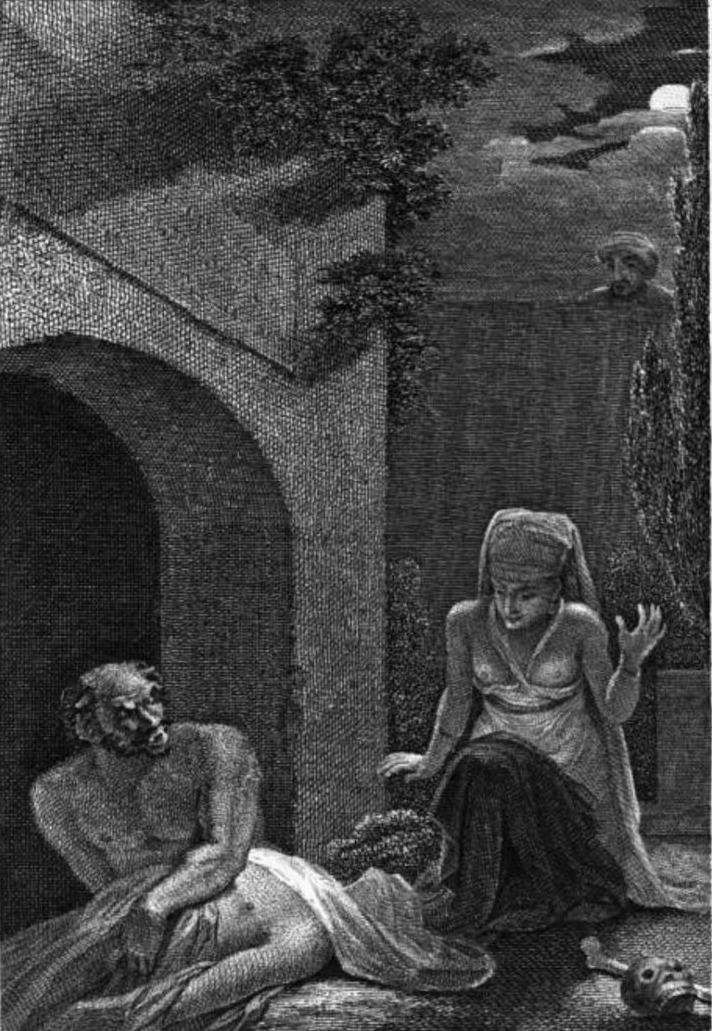|
Zabur
Zabur () is, according to Islam, the holy book of Dawud (David in Islam), one of the Islamic holy books, holy books revealed by Allah before the Quran, alongside others such as the ''Torah in Islam, Tawrāh (Torah)'' and the Gospel in Islam, Injīl (Gospel). Muslim tradition maintains that the Zabur mentioned in the Quran is the Psalms of Dawud (David in Islam). The Christian monks and ascetics of pre-Islamic Arabia may be associated in Arabic poetry#Pre-Islamic poetry, pre-Islamic Arabic poetry with texts called ''mazmour'', which in other contexts may refer to Ancient South Arabian script, palm leaf documents. This has been interpreted by some as referring to psalters. Among many Christians in the Christianity in the Middle East, Middle East and in Christianity in India, South Asia, the word ''mazmour'' (Hindustani language, Hindustani (Nastaʿlīq), (Devanagari)) is used for the Psalms of David in the Hebrew Bible. Etymology The Arabic word wiktionary:زبور, means "bo ... [...More Info...] [...Related Items...] OR: [Wikipedia] [Google] [Baidu] |
Psalms
The Book of Psalms ( , ; ; ; ; , in Islam also called Zabur, ), also known as the Psalter, is the first book of the third section of the Tanakh (Hebrew Bible) called ('Writings'), and a book of the Old Testament. The book is an anthology of Biblical Hebrew, Hebrew religious hymns. In the Judaism, Jewish and Western Christianity, Western Christian traditions, there are 150 psalms, and several more in the Eastern Christianity, Eastern Christian churches. The book is divided into five sections, each ending with a doxology, a hymn of praise. There are several types of psalms, including hymns or songs of praise, communal and individual laments, royal psalms, Imprecatory Psalms, imprecation, and individual thanksgivings. The book also includes psalms of communal thanksgiving, wisdom, pilgrimage and other categories. Many of the psalms contain attributions to the name of David, King David and other Biblical figures including Asaph (biblical figure), Asaph, the Korahites, sons of Kora ... [...More Info...] [...Related Items...] OR: [Wikipedia] [Google] [Baidu] |
David In Islam
Dāwūd, or David, is considered a prophet and messenger of Allah (God) in Islam, as well as a righteous, divinely anointed king of the United Kingdom of Israel. Additionally, Muslims also revere David for receiving the divine revelation of the Zabur. Dawud is considered one of the most important people in Islam. Mentioned sixteen times in the Quran, David appears in the Islamic scripture as a link in the chain of prophets who preceded Muhammad. Although he is not usually considered one of the "law-giving" prophets ('' ulū al-ʿazm''), "he is far from a marginal figure" in Islamic thought. In later Islamic traditions, he is praised for his rigor in prayer and fasting. He is also presented as the prototypical just ruler and as a symbol of God's authority on earth, having been at once a king and a prophet. David is particularly important to the religious architecture of Islamic Jerusalem. Dawud is known as biblical David who was, according to the Hebrew Bible, the second king ... [...More Info...] [...Related Items...] OR: [Wikipedia] [Google] [Baidu] |
Islamic Holy Books
Islamic holy books are certain religious scriptures that are viewed by Muslims as having valid divine significance, in that they were authored by God (Allah) through a variety of prophets and messengers, including those who predate the Quran. Among the group of religious texts considered to be valid revelations, the three that are mentioned by name in the Quran are the Tawrat (Arabic for Torah), received by prophets and messengers amongst the Israelites; the Zabur (Psalms), received by David; and the Injeel (Arabic for the Gospel), received by Jesus. Additionally, the Quran mentions God's revealing of the Scrolls of Abraham and the Scrolls of Moses. Muslims hold the Quran, as it was revealed to Muhammad, to be God's final revelation to mankind, and therefore a completion and confirmation of previous scriptures, such as the Bible. Despite the primacy that Muslims place upon the Quran in this context, belief in the validity of earlier Abrahamic scriptures is one of the six Isl ... [...More Info...] [...Related Items...] OR: [Wikipedia] [Google] [Baidu] |
Ancient South Arabian Script
The Ancient South Arabian script (Old South Arabian: ; modern ) branched from the Proto-Sinaitic script in about the late 2nd millennium BCE, and remained in use through the late sixth century CE. It is an abjad, a writing system where only consonants are obligatorily written, a trait shared with its predecessor, Proto-Sinaitic, as well as some of its sibling writing systems, including Arabic and Hebrew. It is a predecessor of the Ge'ez script, and a sibling script of the Phoenician alphabet and, through that, the modern Latin, Cyrillic, and Greek alphabets. History The earliest instances of the Ancient South Arabian (''ASA'') script are painted pottery sherds from Raybun in Hadhramaut in Yemen, which are dated to the late 2nd millennium BCE. It is an abjad script, meaning that only consonants are usually written in the script, with vowels inferred from context; it shares this feature both with its predecessor, the Proto-Sinaitic script, and modern Semitic languages. It is ... [...More Info...] [...Related Items...] OR: [Wikipedia] [Google] [Baidu] |
Muslim
Muslims () are people who adhere to Islam, a Monotheism, monotheistic religion belonging to the Abrahamic religions, Abrahamic tradition. They consider the Quran, the foundational religious text of Islam, to be the verbatim word of the God in Abrahamic religions, God of Abraham (or ''Allah'') as it was revealed to Muhammad, the last Islamic prophet. Alongside the Quran, Muslims also believe in previous Islamic holy books, revelations, such as the Tawrat (Torah), the Zabur (Psalms), and the Injeel (Gospel). These earlier revelations are associated with Judaism and Christianity, which are regarded by Muslims as earlier versions of Islam. The majority of Muslims also follow the teachings and practices attributed to Muhammad (''sunnah'') as recorded in traditional accounts (hadith). With an estimated population of almost 2 billion followers, Muslims comprise around 26% of the world's total population. In descending order, the percentage of people who identify as Muslims on each ... [...More Info...] [...Related Items...] OR: [Wikipedia] [Google] [Baidu] |
Quran
The Quran, also Romanization, romanized Qur'an or Koran, is the central religious text of Islam, believed by Muslims to be a Waḥy, revelation directly from God in Islam, God (''Allah, Allāh''). It is organized in 114 chapters (, ) which consist of individual verses ('). Besides its religious significance, it is widely regarded as the finest work in Arabic literature, and has significantly influenced the Arabic, Arabic language. It is the object of a modern field of academic research known as Quranic studies. Muslims believe the Quran was orally revealed by God to the final Islamic Prophets and messengers in Islam, prophet Muhammad in Islam, Muhammad through the Angel#Islam, angel Gabriel#Islam, Gabriel incrementally over a period of some 23 years, beginning on the Night of Power, Laylat al-Qadr, when Muhammad was 40, and concluding in 632, the year of his death. Muslims regard the Quran as Muhammad's most important Islamic view of miracles, miracle, a proof of his prophet ... [...More Info...] [...Related Items...] OR: [Wikipedia] [Google] [Baidu] |
Gospel In Islam
Injil (, alternative spellings: ''Ingil'' or ''Injeel'') is the Arabic name for the Gospel of Jesus ( Isa). This ''Injil'' is described by the Quran as one of the four Islamic holy books which was revealed by Allah, the others being the Zabur (traditionally understood as being the Psalms), the Tawrat (the Torah), and the Quran itself. The word ''Injil'' is also used in the Quran, the hadith and early Muslim documents to refer to both a book and revelations made by God to Jesus. Etymology The Arabic word ''Injīl'' () as found in Islamic texts, now used also by non-Arab Muslims and non-Muslim Arabs, comes from the found in the '' Peshitta'', the Syriac translation of the Bible. This, in turn, derives from of the New Testament, where it means “good news” (compare Old English ''gōdspel''; Modern English ''gospel'', or ''evangel'' as an archaism In language, an archaism is a word, a sense of a word, or a style of speech or writing that belongs to a historical epoch beyo ... [...More Info...] [...Related Items...] OR: [Wikipedia] [Google] [Baidu] |
Islam
Islam is an Abrahamic religions, Abrahamic monotheistic religion based on the Quran, and the teachings of Muhammad. Adherents of Islam are called Muslims, who are estimated to number Islam by country, 2 billion worldwide and are the world's Major religious groups, second-largest religious population after Christians. Muslims believe that Islam is the complete and universal version of a Fitra, primordial faith that was revealed many times through earlier Prophets and messengers in Islam, prophets and messengers, including Adam in Islam, Adam, Noah in Islam, Noah, Abraham in Islam, Abraham, Moses in Islam, Moses, and Jesus in Islam, Jesus. Muslims consider the Quran to be the verbatim word of God in Islam, God and the unaltered, final revelation. Alongside the Quran, Muslims also believe in previous Islamic holy books, revelations, such as the Torah in Islam, Tawrat (the Torah), the Zabur (Psalms), and the Gospel in Islam, Injil (Gospel). They believe that Muhammad in Islam ... [...More Info...] [...Related Items...] OR: [Wikipedia] [Google] [Baidu] |
Ghoul A
In folklore, a ghoul (from , ') is a demon-like being or monstrous humanoid, often associated with graveyards and the consumption of human flesh. In the legends or tales in which they appear, a ghoul is far more ill-mannered and foul than goblins. The concept of the ghoul originated in pre-Islamic Arabian religion. Modern fiction often uses the term to label a specific kind of monster. By extension, the word "ghoul" is also used in a derogatory sense to refer to a person who delights in the macabre or whose occupation directly involves death, such as a gravedigger or graverobber. Etymology The English word ''ghoul'' is from the Arabic (), from () ."Ghoul, N." ''Oxford English Dictionary'', Oxford UP, December 2024, https://doi.org/10.1093/OED/2239227052. The term was first used in English literature in 1786 in William Beckford's Orientalist novel ''Vathek'', which describes the of Arabic folklore. This definition of the ghoul has persisted into modern times, with gho ... [...More Info...] [...Related Items...] OR: [Wikipedia] [Google] [Baidu] |
Psalm 37
Psalm 37 is the 37th psalm of the Book of Psalms, beginning in English in the King James Version: "Fret not thyself because of evildoers, neither be thou envious against the workers of iniquity". The Book of Psalms is part of the third section of the Hebrew Bible, and a book of the Christian Old Testament. In the slightly different numbering system used in the Greek Septuagint and Latin Vulgate translations of the Bible, this psalm is Psalm 36. In Latin, it is known as ''Noli aemulari in malignantibus''. The psalm has the form of an acrostic Hebrew poem,New American Bible, Revised EditionNote on Psalm 37 accessed 21 March 2021 and is thought to have been written by David in his old age. Charles H. SpurgeonTreasury of David (The Sword and the Trowel Magazine, 1885)/ref> The psalm forms a regular part of Jewish, Catholic, Lutheran, Anglican and other Protestant liturgies. It has inspired hymns based on it, and has been set to music, by Baroque composers such as Heinrich Schütz a ... [...More Info...] [...Related Items...] OR: [Wikipedia] [Google] [Baidu] |
Aramaic
Aramaic (; ) is a Northwest Semitic language that originated in the ancient region of Syria and quickly spread to Mesopotamia, the southern Levant, Sinai, southeastern Anatolia, and Eastern Arabia, where it has been continually written and spoken in different varieties for over three thousand years. Aramaic served as a language of public life and administration of ancient kingdoms and empires, particularly the Neo-Assyrian Empire, Neo-Babylonian Empire, and Achaemenid Empire, and also as a language of divine worship and religious study within Judaism, Christianity, and Gnosticism. Several modern varieties of Aramaic are still spoken. The modern eastern branch is spoken by Assyrians, Mandeans, and Mizrahi Jews.{{cite book , last1=Huehnergard , first1=John , author-link1=John Huehnergard , last2=Rubin , first2=Aaron D. , author-link2=Aaron D. Rubin , date=2011 , editor-last=Weninger , editor-first=Stefan , title=The Semitic Languages: An International Handbook , pub ... [...More Info...] [...Related Items...] OR: [Wikipedia] [Google] [Baidu] |
Sahih International Translation
The Saheeh International translation is an English-language translation of the Quran that has been used by numerous Muslims, including Islam's most conservative adherents. Published by the Publishing House (dar), ''dar Abul Qasim in'' Saudi Arabia, it is one of the world's most popular Quran translations. Translated by three American women, Umm Muhammad (Emily Assami), Mary Kennedy, and Amatullah Bantley, it uses un-archaic language.Dogmatic Approaches of Qur’ān Translators: Linguistic and Theological Issues Somia Qudah-Refai Notable conventions include rendering the as '' |






